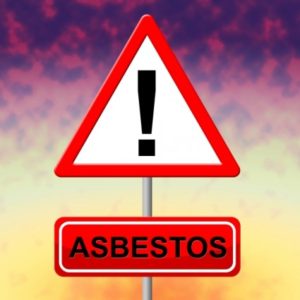According to a recent news feature from the Dorchester Reporter, a major construction project at University of Massachusetts Boston (UMass Boston) will not likely be ready when school starts next month. The reason for this is because asbestos discoveries have seriously delayed the process.
 The project involving moving all utility infrastructure located on the Columbia Point section of the UMass Boston campus to another location as part of an effort to improve the campus. While performing scheduled demolition work last December, inspectors located what they suspected to be asbestos. After their discovery, the called in a certified asbestos abatement firm to collect soil samples and send them to a hazardous materials testing laboratory to confirm the presence of the deadly asbestos fibers.
The project involving moving all utility infrastructure located on the Columbia Point section of the UMass Boston campus to another location as part of an effort to improve the campus. While performing scheduled demolition work last December, inspectors located what they suspected to be asbestos. After their discovery, the called in a certified asbestos abatement firm to collect soil samples and send them to a hazardous materials testing laboratory to confirm the presence of the deadly asbestos fibers.
Once the lab confirmed that the soil samples contained asbestos, UMass worked with an asbestos abatement contractor, the Massachusetts Department of Environmental Protection (MassDEP), and the planning department to develop an acceptable asbestos abatement plan. This requires the use of trained and certified personnel who are wearing full body protection as well as respirators or ventilators.
The respirators or ventilators are necessary, because, once the fibers are inhaled, as our Boston mesothelioma lawyers have seen, they can become embedded in a layer of tissue known as the mesothelium. This layer of tissue is surrounding most internal organs and is designed to protect these organs from harm. However, when asbestos fibers are inhaled, they are sharp and basically become stuck, and the body has no way to remove them. There is no way for doctors to remove them either, and they cannot easily see them without a biopsy, as they are microscopic in size.
After a period to typically 20 to 50 years, they can metastasize into the deadly form of cancer known as malignant mesothelioma. While mesothelioma typically forms in the lungs, and is called malignant pleural mesothelioma (MPM), it can actually form in the stomach or chest cavity. Once it forms anywhere in the human body, it can also spread rapidly to other parts of the body, as malignant mesothelioma is a very aggressive form of cancer that is distinct from the type of lung cancer normally associated with smoking. However, it should be noted that asbestos can cause traditional lung cancer as well and also a serious medical condition known as asbestosis, which is caused when the deadly fibers scratch and scar the lung tissue, causing similar symptoms to chronic obstructive pulmonary disease (COPD).
In addition to the workers wearing protective gear and respirators or ventilators, it is also necessary for the jobsite to be masked with plastic shielding to prevent any dust from escaping into the surrounding air where it can make people sick. On a large outdoor project, they will also typically use an industrial vacuum to prevent dust from escaping, and also they will wet the asbestos to prevent dust from forming in the first place.
On this particular job, there are air monitors in place that are constantly running to make sure the ambient air has not been contaminated with asbestos dust.
If you or a loved one is diagnosed with mesothelioma in Boston, call for a free and confidential appointment at (617) 777-7777.
Additional Resources:
Asbestos find slows work at UMass Boston campus, August 18, 2016, By Bill Forry, Dorchester Reporter
More Blog Entries:
Grant v. Foster Wheeler, LLC – Proof of Asbestos Defendants’ Products as Proximate Cause of Injury, July 5, 2016, Boston Mesothelioma Lawyer Blog
 Mesothelioma Lawyers Blog
Mesothelioma Lawyers Blog

